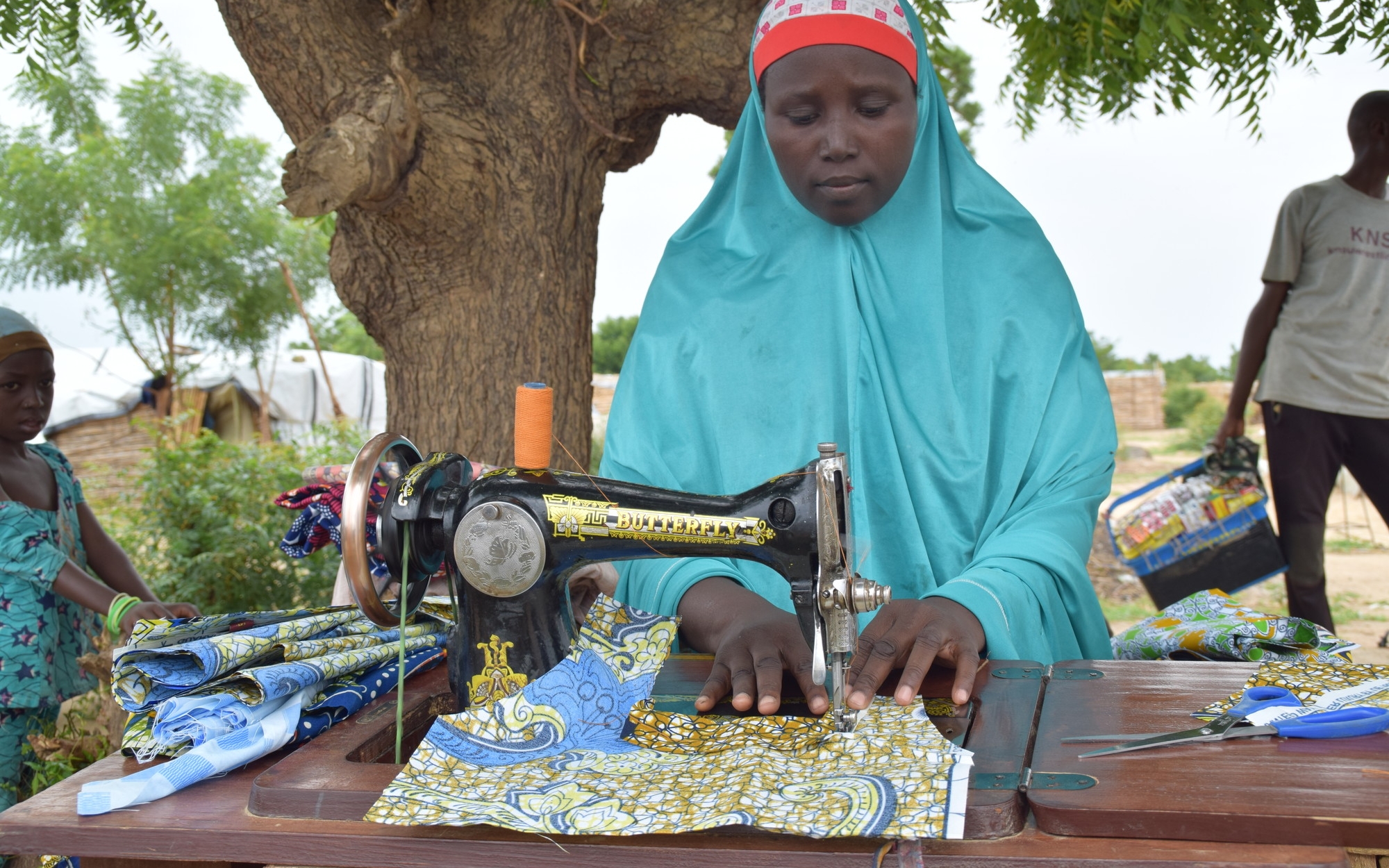Oxfam-organized protection committees help empower community displaced by violence
Strife pushed Maryam, 40, to become a leader. Until recently, she was a trader and her husband was a farmer. They lived a comfortable life. "During our last harvest season, just before we left our village, my husband harvested 10 bags of groundnut, 40 bags of sorghum, and 30 bags of maize,” says Maryam. “But all were taken away by the armed group.”
Maryam is one of the millions of people in West Africa’s Lake Chad Basin region who has been suffering from an ongoing conflict between armed groups and the government. Many people have fled their homes and are now internally displaced.
The armed group that plagued her village encouraged looting, forceful recruitment of young men, and abduction of girls. One of Maryam’s four children was forced to marry underage and held hostage at her husband’s camp.
"After my daughter was married, her husband left to the bush for five months,” she laments. “He and his friend came back and took his wife, my little girl, to their camp. I struggled to save my girl, but I had nothing, and they had guns."
Luckily, Maryam’s daughter escaped. "I couldn't imagine what my daughter went through during this period,” says Maryam. “She lied and said her father was sick and that she needed to come and see him.” She was allowed to come home, and she never returned. With their daughter’s life at stake, they fled their village, and bounced from place to place until they arrived at a camp for internally displaced people (IDPs) in Damboa, Nigeria.
"When I came to this camp, I heard Oxfam talking to us about our rights as women,” she says. “I immediately became interested and joined the protection committee.”

Reclaiming their voices
Oxfam introduced the idea of a protection committee to the camp in February. Nick Lacey, Oxfam protection coordinator in northeastern Nigeria, explains that the main protection mechanism for communities is civil society; in Nigeria, there is a tradition of community-elected leadership. However, with the military in control, communities are struggling to reform their protection structures – typically police, churches, and mosques. Oxfam supports training the committee members on specific issues they have requested to learn more about, such as gender-based violence. The committees take over from there.
For Maraym and others who know what it’s like to feel powerless, the protection committee allows them to exercise control over the way they are treated. She is now part of 16-woman committee that advocates to other women and girls in their camp about their rights and creating safe meeting spaces for others to voice their concerns.
Another member, Hassana, is a mother of two originally from a village about 31 miles from Damboa. Her village underwent several attacks from armed groups who abducted and forcefully married girls and young women to their members. Men and boys were asked to join the armed group and often killed if they refused.
"The armed group used to come to the town, take our motorcycles by force, and try and recruit the young men,” she says. “They tried to recruit one of my brothers, but he refused to join them. They took him outside our village and killed him. For two days, we were not aware that he was dead."
Hassana’s husband was a farmer. During harvest time, the armed group came to their village and made off with their produce. After several attacks, the community members agreed to seek shelter elsewhere.
"We feel protected being close to the military,” she says. “But now I'm counting my losses: my late brother and my niece, whom I may never see again." Her husband has lost his vision, which Hassana views as a symptom of stress from thinking about all that he lost following several attacks on his family.
Despite the hardship, Hassana stands strong for her family and as part of the protection committee, advocates for their rights to safety and dignity as IDPs in the host community. "When I came to this camp, the first NGO to give me things is Oxfam,” she says. “That motivated me to join the protection committee so that I can support other people like me."
Oxfam was one of the first humanitarian organizations to provide assistance to internally displaced people in informal camps and communities around Damboa. Since October 2016, more than 40,300 people have benefited from Oxfam's food relief and Water, Sanitation, and Hygiene (WASH) interventions. But communities in Nigeria continue to face food shortages, and we need your support to provide life-saving aid.
